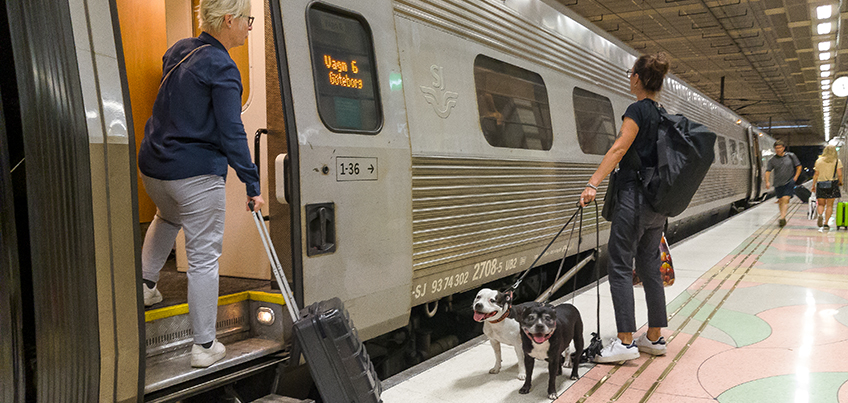International train tickets - a developing market

This report presents the results of the Transport analysis government assignment to analyse the market for international train tickets and the means available for booking and purchasing rail travel abroad. The assignment includes considering what initiatives the state could take to induce industry actors to facilitate these means for customers.
Bookings and sales of international train trips are still handled primarily by railway undertakings that sell their own tickets and tickets from other railway undertakings, although a growing number of sales companies, are emerging on the market. This growth is perhaps most notable among third-party suppliers not operating the service themselves, although also some railway undertakings have taken steps to facilitate the sales of international train tickets.
The market for international train travel is small, and the incentives for investment are limited
There are evidently many factors that limit the incentives for established railway undertakings to expand such operations and sell trips and tickets across borders and outside of their domestic markets.
The former formal monopolies that existed in the non-liberalised railway market are still present as de facto monopolies. It is largely also the former national railway undertakings in other countries that are taking up the competition with the national monopolies as the market has started to open up to competition. In addition, there are still major technical obstacles to running trains across borders. The railway market was built and developed for domestic service right from the start, not least for reasons having to do with emergency preparedness. As a result, the market is typically local or national, with transborder service available only at the margins, although there is probably a larger demand for shorter-distance international trips.
The sales market is on the move
However, we can conclude that the market is developing. The railway undertakings have expanded their business and have begun to sell international tickets, both their own and on behalf of others. New night train relations in Europe have been established and the government task of the Swedish Transport Administration to investigate the conditions for Swedish procured night trains to the continent can provide further lines. This helps reduce travel time and makes it easier to travel further out in Europe.
Measures to stimulate the market
In the final chapter of the report we present measures intended to address the identified problems. In some cases, the Swedish state may be justified in implementing them. In other cases, we consider that it is primarily through continued EU regulation that the solutions will be found, including the application of the EU’s competition rules combined with the market’s own evolution and initiatives.
EU regulation
The EU is engaged in a multi-year effort to develop, digitalise, and harmonise the market for travel information services. Among other measures, the EU has introduced rules to serve as the basis for harmonising standards and technology for a common digital infrastructure. Regarding information and through-ticket systems, the EU Commission shall, within a few years, submit a report on developments and, if necessary, propose legislation. This work also includes the important issue of clearer and more stringent passenger rights for rail passengers in the EU.
We propose that Sweden through the Government continue to work on pushing this work towards the market being characterized by competition-neutral conditions between market participants and a strong position for travellers.
EU competition rules
Another guarantor for maintaining competitive market conditions is the EU competition rules, implemented in national competition law in the Member States. Decisions made by national competition authorities suggest that the competition rules are and can continue to be an effective tool against dominant players abusing their position in order to prevent the start-up of third-party sales. This also helps to stimulate development. The case law that follows from the decisions of the competition authorities and the decisions of the courts is important to clarify the application of EU competition rules. We assume that the Swedish Competition Authority will continue to pay attention to the issue within the framework of its task of following developments in its area of responsibility.
Assignment to the Swedish Consumer Agency to provide independent information to travellers
We propose that the Government assigns the Consumer Agency to expand its information service and to carry out a campaign aimed at train passengers.
